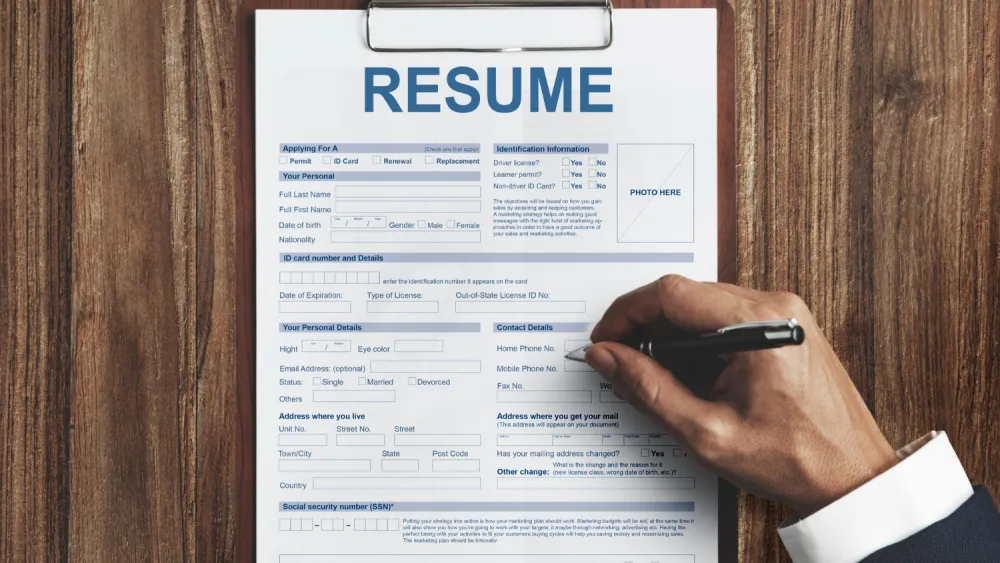
Pay cuts, salary stagnation await workers in post-pandemic workplace
Salary hikes will be few and far, but it’s not all doom and gloom as companies transition to the new normal.
When Matthew’s employer asked him to work from home late in February, the father of two was initially jubilant. “I thought it was great to have more time to spend with the kids,” he shares. But as the coronavirus pandemic ran its course, Matthew found himself longing for the comfort of the office. “Keeping productive at home was difficult—my kids would sometimes smash my keyboard or ask to watch videos while I’m working.”
Soon, though, he had no choice but to find a way around the distractions. He ended up exclusively working from home for over six weeks, and his employer has implemented a reduced work week once restrictions were lifted. “I don’t mind working from home, but it’s hard to juggle it all with childcare, among other things” he says.
Matthew is one amongst thousands of Hong Kong workers who had to rapidly transition to a work from home setup due to the coronavirus pandemic.
“Historically, Hong Kong hasn’t had a huge ‘flexible working’ culture. Because most firms were forced into it to get some productivity outcomes during the work from home period, most are realising it is a really good thing and a huge retention factor for their millennial workforce,” notes Sharmini Wainwright, senior managing director at Michael Page Hong Kong. “I think this is one of the best outcomes to come out of the pandemic as it has forced organisations to embrace technology and flexible working solutions. However, Hong Kong does have one constraint in that most people live in apartments without the luxury of having a designated ‘study’ area,” she adds.
Corporate cost-cutting
Hong Kong’s experience of the coronavirus pandemic is significantly different from other countries. Unlike in other jurisdictions, the Hong Kong government has not imposed mandatory rules in relation to workplace arrangements for employees in the private sector. However, compared with other Asia-Pacific countries, Hong Kong has also reported fewer layoffs and retrenchments.
A survey by Wills Towers Watson revealed that only 2% of employers in Hong Kong state that they will implement salary reductions, compared to a staggering 18% in neighbouring Singapore. Meanwhile, 7% of employers in Hong Kong are mulling layoffs. And although there have been a few high-profile redundancies—such as Sa Sa Cosmetics, which axed 3% of its 2,500-strong workforce and reduced pay by up to 40%—experts expect that the job market will remain relatively resilient.
“Whilst we have seen a small portion of layoffs, it has not been as large scale as we expected and to some degree, Hong Kong should benefit from a somewhat ‘V’-shaped recovery that Mainland China has a chance of achieving,” Wainwright notes. “Also we have seen a significant number of large financial services firms pledging that they will not displace their employees during 2020 as a goodwill gesture. This has helped the supply and demand equation in the labour market.”
Generous government subsidies may be a key reason behind the relatively smaller number of layoffs in Hong Kong. In recent weeks, the Hong Kong government has introduced a range of budgetary measures to keep employees at work. In particular, the government has introduced the Employer Support Scheme, where eligible employers will receive a maximum of $9,000 per employee per month in exchange for an employer undertaking to implement no redundancies and to spend all government wage subsidies in paying wages to their employees.
“The government subsidy scheme is effective from June through to November 2020, and all firms partaking need to make a pledge to not enact redundancies within their organisation,” Wainwright explains. “The best case scenario is that this will allow firms to get through the most challenging period with support, with a view of being self-sufficient from December. In the worst case scenario, if economic conditions continue to deteriorate in Hong Kong, firms may trigger their redundancies in December and January.”
KPMG’s latest executive salary outlook reveals that more hiring managers expect headcount to be reduced in 2020. The wary sentiment was especially pronounced in the consumer markets and real estate sectors, where 41% and 27% forecast headcount reductions as compared to 18% and 8% respectively in 2019. Sectors that bucked the trends included the innovation and technology sector, where 52% expected an increase in headcount, compared to 44% in 2019. The higher headcount demand for innovation and technology is likely due to the growing reliance and openness of consumers across the Greater Bay Area to use digital tools.
These forecasts have already started to play out during the height of the pandemic. In April, Hong Kong-headquartered booking platform Klook revealed that it has reduced its global headcount and furloughed a portion of its workforce due to COVID-19, whilst the startup’s founders will forego pay until the end of the crisis. Meanwhile, cruise ship and casino operator Genting Hong Kong revealed that its top executives will waive their fees and compensation from February until the end of the year, whilst other senior staff will suffer pay cuts ranging from 10% to 50%.
“With many businesses urgently looking at cost management strategies, we found that redundancies and workforce reductions are not the first actions that organisations necessarily choose to take. Common alternatives include hiring freezes, furloughs, reduction in benefits and limits on overtime or other expenses,” explains Edward Hsu, leader of data services and compensation software for Asia Pacific at Wills Towers Watson. “Some organisations are also considering enacting early retirement programs. Amongst the 73% of organisations that do not have a hiring freeze in place, 26% would plan to implement other cost reduction measures before redundancy.
Whilst the change is likely to be disruptive, Hsu adds that employers have already taken many steps to safeguard their employees. Many are cutting the salaries of their senior staff, including at the CEO level (for instance, in the hard-hit airline industry); retail, restaurant, and gig economy firms have adjusted leave policies to provide pay to staff recovering from a coronavirus-related event; whilst tech companies are paying hourly workers impacted by office closures.
“With the evolving situation, business priorities will be reviewed and resources will be re-allocated according to changing business objectives. For instance, we can already observe some employers focusing on key talent retention and incentivisation, which may have a positive impact on business in an uncertain environment,” Hsu says.
No salary growth, no hiring
As companies grapple with the scale of the pandemic, experts warn that there will be minimal to no salary growth this year. “For corporate professionals, our overall salary growth outlook is minimal. Most organisations have issued salary cuts for Q2 and also significantly reduced bonuses. We envisage that the focus will be more around ‘retaining roles’ than salary growth,” Wainwright notes.
Corporate perks will also disappear in the near future, she adds. “Usually in a normal market these perks are viewed as being very important. I think this challenging period has allowed most working professionals to be grateful for continued employment, hence the lack of ‘perks’ are at the bottom of their priority list.”
This sentiment is echoed by Murray Sarelius, head of people services at KPMG China. “Companies need to be nimble to protect staff and the business. The priority is checking that people are safe and then implementing business continuance plans if they’re available, or working out how to react and cope in the new environment.”
In terms of hiring, experts warn that domestic hiring will grind to a halt during the course that companies ride out the pandemic. “When the pandemic moved from Greater China to Asia, then, globally we experienced both domestic firms and multinational organisations question their hiring needs and prioritise what were viewed as business critical roles,” Sarelius says.
For fresh graduates or entry-level jobseekers, Wainwright notes that despite job prospects currently looking more bleak, some customer service roles may remain open amidst the pandemic. “A number of notable management training programs have been put on hold and graduate intakes have significantly reduced in size for the typical large hirers (e.g., banks and professional services firms). If these individuals have been “flexible” they are a natural talent pool for customer service roles, many which have increased during this period,” she notes.
Job prospects of mid-career professionals vary per industry. Mid career professionals in Technology, Digital, Analytics, Procurement, Risk, Credit and Accounting functions are in high demand, due to the nature of work they provide being directly linked (with workload increased) during this pandemic season. However, the most impacted professions are Human Resources, Marketing, Administration and Property. “Mid-career professionals who are immediately available and out of work can actually secure some meaningful contract work during this period, as organisations may have resourcing needs but not be able to commit to a permanent headcount,” Wainwright says.
There remains a silver lining when it comes to hiring during this period. “We have recently seen a strong emergence in hiring activity from Mainland China-headquartered firms in Hong Kong whilst domestic and multinational firms are slower to pick up in their hiring volumes. Business critical and replacement roles are being recruited for; however, there are very few newly created roles. Within our work portfolio, we currently have the highest number of confidential searches, signifying that a number of organisations are using this pandemic season as a reason to replace and upgrade senior members of their leadership team, particularly in the sales function,” she shares.
Moving past the pandemic
As firms slowly transition to the new normal, experts caution that the workplace may never be the same again. Companies will have to integrate flexible work arrangements into their organisational setup, and massive investments will have to be made in terms of technology and information technology infrastructure.
“I think the digital disruption that is happening here will absolutely be a permanent change. We will see ways of working and business models that are permanently changed as a result of that adaptation to the coronavirus disruption. It’s highly likely if not a certainty that businesses will integrate remote working far more into their mix of operations,” says Simon Lance, managing director for Greater China at Hays.
However, it is unlikely that firms will revert to a purely work-from-home arrangement. “As the situation in Hong Kong continues to improve, employers in Hong Kong are now conducting an assessment of the risk in their workplaces, and many are determining that with appropriate measures in place, the workplace is now safe for employees to return,” notes Ken Ng, associate at Baker McKenzie Hong Kong.
Firms need to ensure that workplace safety standards are maintained as employees head back to the office. “The Hong Kong government did not require private sector employees to apply remote-working arrangements at any stage, but rather encouraged employers to mirror arrangements in place for civil servants. Employers are not required special permissions or approvals before asking their employees to return to the workplace, [but] before asking employees to return to the workplace, employers should consider the reasonably practicable measures that can and should be implemented to minimise the risk to employees’ health and safety at work,” Ng says.
These measures include ensuring that offices have good ventilation, are regularly cleaned, and that frequently-touched surfaces are disinfected. Face masks must also be provided for employees working in crowded environments or public-facing roles. Companies must also consider a gradual return to work through staggered or split teams to maintain social distancing, and a policy of avoiding unnecessary business travel must be adopted.
With regard to continued work-from-home arrangements, employers have the discretion to allow requests for more permanent work from home arrangements, taking into account the health and safety of its employees. “It is advisable for employers to clearly communicate their work from home policy and provide proactive support, such as IT support to make wfh accessible and convenient. In addition, such a policy should clearly stipulate the obligations of both employers and employees during any work from home arrangement,” Ng says.
Lance agrees with this view. “For organisations that are either assessing their performance during the pandemic or preparing for a return to work, there is a need to stress-test all the digital and IT infrastructure that you have in place for remote working. My advice would be to test and assess and test and assess as much as you possibly can before resuming operations,” he says.
The end of the office?
The jury is still out as to whether the pandemic will spell an end to the workplace as we know it. “We are already seeing clients adapt their property plan for their next lease renewal with a smaller property footprint—taking into account that a portion of their workforce will work from home at any day,” Wainwright says. “However, I don’t see such a dramatic change to areas such as the open plan workspace, but no doubt more consideration will be put into the layout and spacing between desks and the amount of people in any one designated area. Again, flexible working helps with this problem.”
Lance notes that the pandemic will push organisations to rethink their use of physical office space. “There is some discussion in China about the overall purpose of physical office space, when tasks can be done efficiently elsewhere. Its purpose has progressed beyond just the completion of tasks and there are issues about innovation or collaboration, team culture, and emotional support,” he notes. “I think everyone is still feeling their way about how to integrate that into a company’s operations, but it will perhaps prompt organisations and even entire industries to rethink how they feel and think and plan about physical office space.”
As the pandemic runs its course, both employers and employees should be proactive and flexible. “The advice that I’ve been giving to a lot of senior-level or executive candidates is to rethink how their value to an organisation is going to be perceived in a radically different world. From an executive recruitment position, companies are now extremely interested in someone’s aptitude for ongoing learning and self-development,” Lance notes.
“My advice to employers is to take it a little bit slow. Give yourself and your teams a little time to understand what the market is. I think it is highly unlikely for any country that the return to work will be completely smooth; there will be a few ups and downs and as part of that there will be risks and opportunities that people should be prepared to take advantage of and make the most of. Take care of your key people,” he adds.


















 Advertise
Advertise








